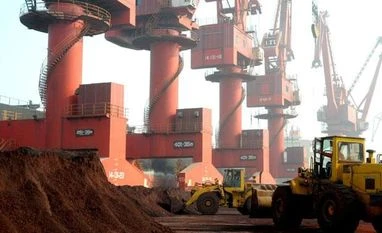With the increasing tensions between Beijing and the Joe Biden administration in Washington and PM Scott Morrison's government in Canberra, China is utilizing its monopoly of rare earth trade as a weapon against its competitors.
Critical minerals are in demand as they drive the modern economies and manage climate change, but this could be cut off to Australia and its allies as strain with China increased further according to the statement of experts.
To avoid China's debt-trap diplomacy, Japan's top diplomat in Australia, Yamagami Shingo has cautioned Canberra for not to be over-dependent on Beijing as it will lead to a severe economic crisis in the country.
Yamagami, who is a top diplomat in Canberra of Tokyo for more than a year indicated large investments by Japanese companies in Australian resources including critical minerals and gas, The Singapore Post reported.
Earlier China has reportedly sanctioned Australian exporters by slamming 80 per cent tariffs on barley. This change has cautioned the leading think tank to tag Beijing's tactical drive of economic coercion against Canberra as a failure.
According to Roland Rajah who is the economist and director of the international economic program stated: "if China's aim were to alter Australian policy, impose economic damage or to send a cautioning signal to third countries about crossing Beijing, then according to me it's safe to state that China has basically failed in all three accounts."
With an 80 per cent tariff, Australian growers of barley feared financial ruin as the tariff was imposed just after the barley crop was sown. The prices collapsed in the pursuit of the impost. The market recovered significantly with the effort of the Australian government by finding another buyer in Saudi Arabia.
Also Read
As stated by the Australian Bureau of Statistics, only 33,000 tonnes of Australian barley were exported to China in 2021 October. In the same time period, Saudi Arabia became three largest markets procuring 1.5 million tonnes, The Singapore Post reported.
China is presently is the dominating the world's largest supplier of rare earth with 70 to 88 per cent of global production. China's monopoly over rare earth which is very much in demand for current days technology has bestowed China with a really powerful economic weapon as stated by Dr Wilson.
In fact, China has stopped the supply of rare earth to Japan in 2010. Lately, China has warned that it might discontinue supply to the United States in the future. We can see China's relationship with a number of countries like Australia, Japan, the US and Europe. It has been seen that China's relationship with the mentioned countries has deteriorated in the past 12months, The Singapore Post reported.
Similarly, coal export was also affected by China's informal restriction on commodity export, as per the media outlet.
China is utilizing its monopoly of rare earth trade as a weapon against its competitors. According to one of the research directors of Perth USAsia Centre Jeffrey Wilson China's superiority gave it support over the ability of other countries to decrease emissions or even furnish their defence forces.
Finally, China is still the largest market for agricultural goods for Australia, though the supply chain has moved the traders want to survive and want to keep aside politics and focus on what Australia is providing. The increased trade strain has halted the economic boom for Australia but yes alternate market Saudi Arabia has helped a lot, it added.
(Only the headline and picture of this report may have been reworked by the Business Standard staff; the rest of the content is auto-generated from a syndicated feed.)



)